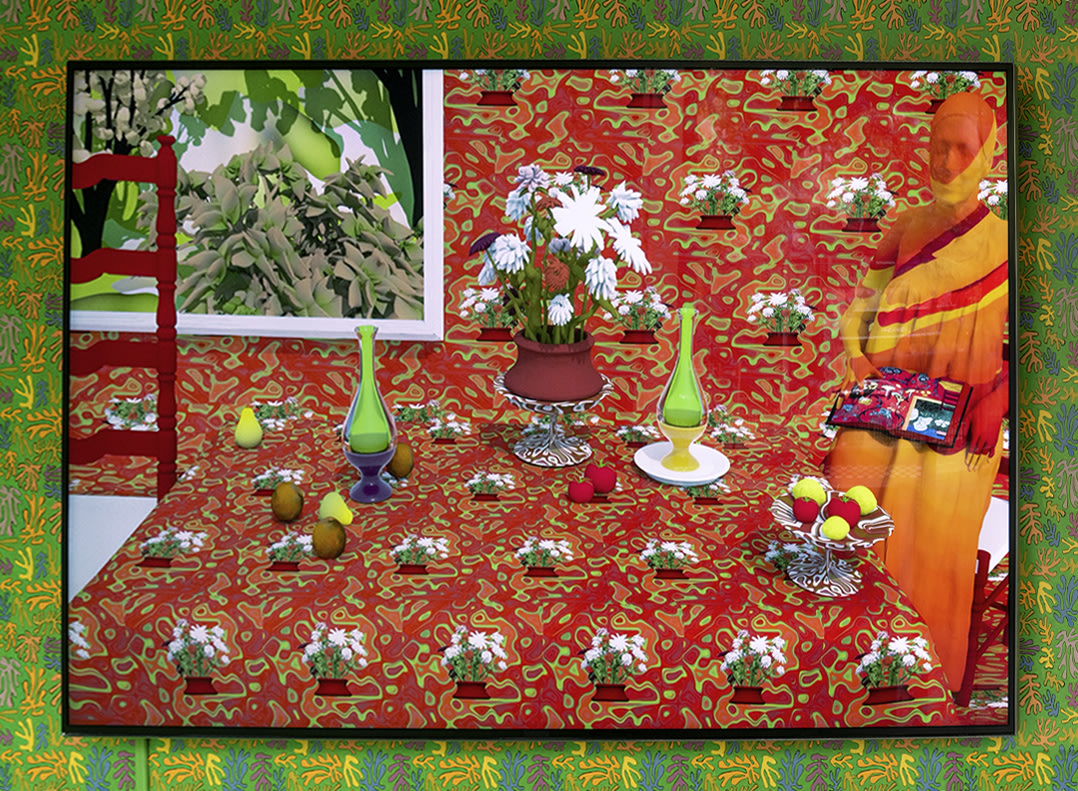The Ruins, 2020
Single channel video animation, 10 min, loop
Courtesy of Gazelli Art House Ltd.
Copyright The Artist
About The Artwork
Three screens or projectors, three media players, speakers
Audio by Edmund Campion
The Ruins implements still lives, the classical form of a memento mori, to reflect on the canons of a patriarchal western civilization: modernist painting and manifestos of political utopias. Within this three-channel animation, Hart has produced very low polygon models—poor copies or “images,” to borrow a term popularized by Hito Steryl. The models are of copyright-protected paintings by Matisse and Picasso, painters who mark the onset of Modernism. With these models the artist built a game-style labyrinth, covering its walls with animations that also infringe on copyright protections - for it is copyright that also marks the beginning of Modernism, responding to the emerging technology of that era. Central to this work is an audiovisual animation composed by Edmund Campion that tracks through the claustrophobic game worlds created by Hart.



